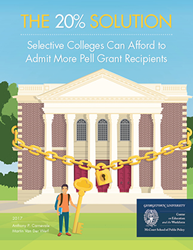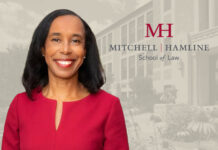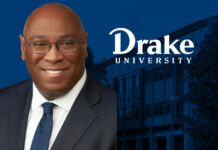 Several years ago, Caroline Hoxby, the Scott and Donya Bommer Professor of Economics at Stanford University, completed a study on the college application behavior of high-achieving, low-income students. She found that many of the nation’s most talented minority students simply do not apply to our nation’s leading colleges and universities. Professor Hoxby found that many of these students are simply unaware of the educational opportunities that are available to them or our scared away by the high ticket prices at these institutions. (See earlier JBHE post.)
Several years ago, Caroline Hoxby, the Scott and Donya Bommer Professor of Economics at Stanford University, completed a study on the college application behavior of high-achieving, low-income students. She found that many of the nation’s most talented minority students simply do not apply to our nation’s leading colleges and universities. Professor Hoxby found that many of these students are simply unaware of the educational opportunities that are available to them or our scared away by the high ticket prices at these institutions. (See earlier JBHE post.)
 Now a new report from the Center of Education and Workforce at Georgetown University in Washington, D.C., supports Professor Hoxby’s earlier findings. The report, The 20% Solution: Selective Colleges Can Afford to Admit More Pell Grant Recipients, finds that nearly 90,000 students who are eligible for federal Pell Grants for low-income families, are qualified to be admitted to the nation’s selective colleges and universities but do not enroll in these institutions.
Now a new report from the Center of Education and Workforce at Georgetown University in Washington, D.C., supports Professor Hoxby’s earlier findings. The report, The 20% Solution: Selective Colleges Can Afford to Admit More Pell Grant Recipients, finds that nearly 90,000 students who are eligible for federal Pell Grants for low-income families, are qualified to be admitted to the nation’s selective colleges and universities but do not enroll in these institutions.
The study finds that if 346 selective colleges and universities had Pell Grant recipients equal to 20 percent of their enrollments, an additional 72,000 low-income students would be educated at these prestigious educational institutions. African Americans receive 24 percent of all Pell Grants, according to the report.
The report also notes that many of the nation’s most selective universities have huge endowments and budget surpluses of more than $100 million each year, yet less than 20 percent of their students are from low-income families. Thus, providing increased financial aid to boost the numbers of low-income students appears to be affordable for these institutions.
Anthony P. Carnevale, director of the Center of Education and Workforce at Georgetown University and lead author of the report, stated that “highly qualified Pell Grant students are being turned away from the opportunity for an elite college education, which is more and more open only to the wealthy.”











From the linked report:
FIGURE 5.
Pell Grant recipients who scored above the median (1120) on the SAT but are not attending selective colleges are overwhelmingly white.
The racial breakdown given is 81% white, 6% Hispanic, 3% black, 10% “other”.
There is no doubt that low income minority students could thrive at these institutions. However, are these elite institutions doing enough to reach out to these students? Elite colleges are part of the reason there is a wealth growth in the black community, especially in the upper middle-class bracket, according to a New York Times article titled “Black People Are Mot All ‘Living In Hell.'”
While a significant source of their mega endowments are funneled in by billionaire philanthropists and large corporations, I believe these institutions’ recruiting focus is set on their core student body: wealthy upper class white families, who are likely alumni donors.